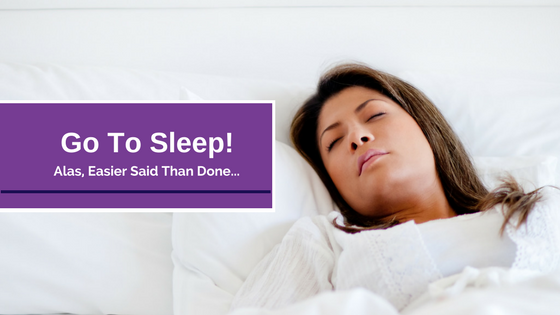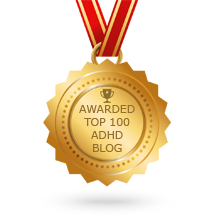We know that sleep is critical for effective functioning. Sure, we can get by on almost no sleep if the need is great enough (cram for a major test or deadline report, new baby in the house, binge-watch Game of Thrones, etc.).
However, keep up the sleep-deprivation and there’s no getting around the consequences:
- Feeling tired with a lack of physical energy and slower response time (driving hazard).
- Low energy, making it harder to activate on tasks (whether work-related, going to the gym or even doing the dishes!)
- Mental sluggishness, so its more difficult to make decisions, problem-solve or transition between activities.
- Physical, not just cognitive concerns. Research shows that sleep helps repair our cells, tissues, hormonal and immune systems, so lack of it creates links to many chronic diseases and conditions—including diabetes, high blood pressure, heart disease, obesity and depression.
Unfortunately, for many people — especially those with ADHD — sleep can be problematic. Sleep challenges include staying up late to finish the stuff you didn’t get to during the day… or because night is your most productive time… or you crave some ‘down time’ or quiet time… or you find it difficult to fall asleep because your brain keeps working… or your stimulant meds haven’t left your system… or you are tired, go to bed then get a sudden burst of energy… or you have an out-of-sync circadian rhythm, where you get tired later and may really struggle with getting up at the expected time.
You might have sleep-onset insomnia (I’ve read that 50% of adolescents with ADHD have it), or sleep-maintenance insomnia (difficulty getting a restful night’s sleep). There’s even a disorder called Delayed Sleep Phase Syndrome, aka The Night Owl Effect (my term for DSPS, coined as I write this at 2am <g>).
If you live in a bit of a vacuum and can set your own schedule to get up later, sleep variances are not as problematic (although some research shows this still affects health and weight). However, most people need to get to sleep in order to get up by a certain time. Creating healthy sleep hygiene, or rituals, helps create better sleep, with all of the benefits. So here are a bunch of tips and strategies to help.
TIPS & STRATEGIES to Get to Sleep
Start by setting an intention that getting to sleep at a specified time is actually something you want to do. Talk is cheap when weighed against, “I don’t feel like it.” Think about the benefits you’ll gain (from feeling more alert in the morning to time for a comforting nighttime cuddle with your partner), so your focus is positive (gain, not loss).
Decide on a realistic bedtime. If you tend to stay up until 3am, setting a 10pm bedtime is less likely to be successful than gradually weaning down the hours.
Create a consistent bedtime ritual. Figure out what you do to prepare for bed, and standardize the procedure. Make a list to create an SOP (standard operating procedure), so you won’t forget the details. Link new habits to ones you already have (like brushing your teeth then getting into bed and reading for 30 minutes before mandatory lights off).
As part of your bedtime routine, reduce morning stress by making sure you have everything ready for getting out of the house on time (if that’s an issue for you).
Note: Parents need to be firm about enforcing their child’s bedtime, while making time for their nightly bedtime ritual (bath, books, hugs, etc.). If they are young, create a page with illustrated steps and post it where they’ll see it.Try to keep the same bedtime and ritual on weekends, with only occasional exceptions.
Avoid sleep disturbing activities. These include late-day exercise (although some people say that helps them to sleep), heavy meals and screens.
- Numerous studies show that, apart from the mental stimulation the activity creates, the blue light emitted by computers, tablets, TVs, phones, etc. is itself stimulating. So turn off the electronics an hour before bedtime. If you can’t, use screen software or glasses with special lenses that eliminate blue light.
- Some people believe that eliminating ELF electric fields and magnetic fields during sleep is important to optimize cellular regeneration, so turn off those devices or move them out of the bedroom.
- While having an alcoholic drink before bed may help you go to sleep quickly, realize that it is a depressant and affects REM sleep, so you won’t sleep as deeply.
- If you think medication is keeping you awake, tell your doctor. Perhaps an adjustment can be made in dosage, timing or type of med. Caffeine can affect sleep for up to six hours. However, for some people with ADHD, a low dose of their stimulant or caffeine can sometimes help them to sleep by slowing down their overactive minds.
Consider natural sleep aids, like certain herbal teas such as chamomile, or blends specifically for bedtime. Some people occasionally take melatonin or valerian root to help them get to sleep, but these are not right for everyone. Most melatonin supplements contain much more than is needed, and a half or third dose is said to be as effective. Tart cherries have similar properties. GABA and CBD (cannabidiol) oil are recommended by some nutritionists to improve deep sleep.
Breathe deeply and stretch before sleep. Dr. Andrew Weil suggests using the “The 4-7-8 Breathing Exercise,” also called “The Relaxing Breath,” to promote better sleep. This is based on pranayama, an ancient Indian practice that means “regulation of breath.”
Comfort your senses. Many people are sensitive to:
- Sound. “White noise” can be soothing and block out other sounds. Use a fan or white noise machine. Listen to environmental sounds (available online, but find ones that work for you or they can have the opposite affect!). Try listening to music or guided meditations specifically designed to assist the sleep process.
- Light. Consider room-darkening shades and dim LCD displays.
- Visual. Think of a few enjoyable and peaceful images you can visualize as you drift off, or buy a calming graphic and hang it near the bed. Associate these with sleep.
- Smell. Scents like lavender are very relaxing for some, so experiment with scented oils on your pillow or use a room diffuser.
- Touch. Are your sheets comfortable? How about your pillows? Do you prefer a heavier cover (some people find this soothing) or a very light one? Is it time for a new mattress? You spend a lot of time in bed. Make it as welcoming as possible.Temperature. Sometimes an adjustment (heat, air conditioning, fan, open window) makes for a more comfortable night’s sleep.
- Environment. People tend to sleep better in an uncluttered, clean environment. Try to keep ‘stuff’ out of the bedroom (think of it as a sanctuary, if possible), and make a quick pick-up part of your evening routine.
Quiet your mind, and the body will follow.
- Begin your bedtime routine with conscious relaxation: take a walk… enjoy a bubble bath… read inspirational books or a good romance… practice mindfulness… or whatever works for you.
- Use the bed for sleeping (or sex). Avoid working in bed or watching TV (at least not for 60 minutes before bedtime). Try the Pavlovian approach: See bed, go to sleep!
- Discourage conversation and engagement. Right before bed isn’t the time for phone calls or text conversations. Certainly not for checking Facebook or any social media. If your child (or spouse) picks lights-out as the time to converse, don’t buy into it (unless there’s some important emotional issue going on that can’t wait). Avoid discussion: just state that you’ll talk about it in the morning, when you can give them your full attention. If mornings aren’t going to work, set a time that will. Then follow-through.
- If bedtime is when you tend to obsess about anything negative that happened during the day, take a few minutes to write it all down – then try to let it go, at least for the night. Research shows that when we give brief thought to a problem before sleep, our minds often work through the answer while we get our rest, so a two-for-one benefit! (A good study tip as well.)
- Make thinking about things an early part of your bedtime ritual. If bedtime is the first time you have a chance to just think, it can keep you awake. So before you actually get into bed, sit and allow yourself time to review your day and plan for the next day. I highly recommend making a habit of review and planning to increase productivity and decrease forgetfulness! Keep a pad or planner handy to write down your thoughts, or dictate a memo into your phone with the things you have/want to do. Writing things down clears your brain and facilitates getting tasks accomplished. Allow yourself 15 minutes to obsess over them, or over any problems, real or self-generated. Then wave your magic wand (use a back-scratcher in a pinch) and take a page from Gone With the Wind – “I’ll think about it tomorrow.”
- End your day on a positive note. After you’ve done your ‘mind dump,’ take the time to write down three things you ‘did good’ that day. It’s easy to remember where you messed up, but it’s worth the effort to remember those things you did well, or at least better than you did in the past. Sometimes, just getting out of bed and taking a shower is an accomplishment. Now, look outside of yourself and add three things to your gratitude journal. Seems minor, but this small action can have a monumental impact on your mood, and lead to better sleep.
Enjoy a restful, energizing sleep tonight!
If you’ve found ways to make sleep your friend, share them in a comment!
If you’d like to discuss your specific situation with me, click here to schedule a no-cost or obligation 20-minute coaching consult.
Very best,
Susan
Feel free to share this post, with attribution to: Susan Lasky – Productivity, ADHD, Career and Organization Coach – www.SusanLasky.com


